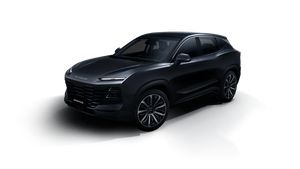JAKARTA - The European Union (EU) will impose a high tariff on Chinese-made electric vehicles (EVs), the EU executive commission said in an official statement on Friday, October 4.
Launching Reuters, October 5, this decision was taken even though Germany, the largest economic country in the EU, was strongly opposed. This is a sign of an internal rift in the EU in dealing with their biggest trade disputes with China in the past decade.
The amount of the proposed tariff reaches 45 percent. This means that car manufacturers will have to spend billions of extra dollars to market their cars in the EU region. This tariff is planned to be implemented starting next month and is valid for five years.
The European Commission, which is in control of EU trading policy, stated that this tariff is needed to tackle the unfair subsidy practices given by the Chinese government to their car manufacturers. This is based on an anti-subsidized investigation that has been going on for a year. However, the EU continues to open up negotiations with China. One of the compromise options considered is the determination of the minimum selling price.
SEE ALSO:
In a tense vote on Friday, 10 EU member states supported tariffs, while 5 countries opposed, and 12 abstained. To block this proposal, a "no" vote is needed from 15 member states with a minimum representation of 65% of the EU population. Based on a Reuters report on Wednesday, this action is expected to pass thanks to support from France, Italy and Poland.
Germany, the country with the largest economy and leading automaker in the EU, has actually become the party opposing the tariff. Even so, the EU executive commission claims to have "get the necessary support" to apply tariffs. They still open up negotiations with China to find alternative solutions.
The English, Chinese, Japanese, Arabic, and French versions are automatically generated by the AI. So there may still be inaccuracies in translating, please always see Indonesian as our main language. (system supported by DigitalSiber.id)











